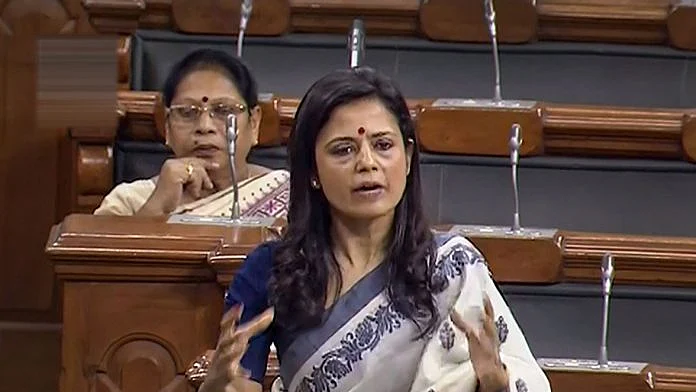Can more women in parliament ensure women’s safety and welfare in these times of mobocracy?
The 17th Lok Sabha has the highest number of women MPs elected in the 2019 polls. There are 78 women members of parliament, the highest since independence. Does this mean that women will feel safer?

Are you expecting any changes to take place in your daily survival, just because more women can be seen in the Parliament? In fact, I have been asking myself: Does this high percentage of women in the Parliament ensure that women on the road and in work-places and homes will feel safer? Will women be able to walk fearlessly to the nearest police station to lodge complaints and FIRs against their political tormentors? Will women carry the grit to take on the political mafia unleashed on them? Will women manage to oust the land mafia from their ancestral lands and fields? Will women get confident enough to pinpoint their rapists and molesters whilst rioting is made to peak? Will women manage to cry halt to the lynching and hounding taking place almost on a daily basis? Will women be ‘azaad’ enough to decide what to cook or buy or sell or bargain for? Will jailed women get better facilities in the prisons and jails of the country?
In a democracy, it doesn’t really matter if you have women or men ruling; after all, all that matters is that the rulers ought to be just and secular. And also accessible to common man! Tell me, if tomorrow I’m lynched ( and left somewhat alive ), which woman parliamentarian’s door will open for me, to hear from me those gruesome details? Will I have to take an appointment and wait for days to show those injuries and bruises on my body and psyche? After all, don’t we know that parliamentarians live amidst high security, where the middle class non-descript creatures like us cannot intrude without the due formalities. After all, we are said to be living in these highly developed times!
Tell me, how many of the women parliamentarians travelled last month to Jharkhand, to meet the widow of the latest lynch victim, Tabrez Ansari. The least that could have been expected was a group of women parliamentarians expressing solidarity and sympathy to that hapless woman. Though the lynching and hounding and even killing of a certain section of the population continues but no strong counters. No women parliamentarian group visited the homes of Pehlu Khan or Akhlaq Ahmad or Junaid Khan to meet their families. Nor did they visit the households of those particular families destroyed in the communal riots and pogroms. Not even now, when news reports say that the Yogi Adityanath government is withdrawing cases against several of the BJP’s top brass in Western Uttar Pradesh, who were involved in the horrifying Muzaffarnagar riots of 2013.
It’s important to mention here that cases of rapes and molestations of several women from the minority community were reported in those riots; in fact, soon after those riots subsided, victims had said that they couldn’t even register formal complaints/ FIRs because of the fear of the aftermath from the right -Wing men controlling that entire belt. After all, it’s the right-wing political mafia that holds sway in that region. Yet, cases on the men who were named as the main conspirators or instigators are being withdrawn. In this horrifying communal violence, 60 people lost their lives and more than 40,000 people were displaced and a total of 502 cases were registered against 6,867 people.
Strange or not really, as all’s possible in the times we are living in, where democracy and all those democratic norms are fast fading away. Instead, we face this onslaught on a daily basis. Can we forget the hate-dripping statements of the likes of Sadhvi Pragya Thakur, Sadhvi Niranjan Jyoti? Can we overlook the utterances of the likes of Maneka Gandhi when during her electioneering had so very blatantly bared her inner most thoughts - along the strain, that if Muslims of her constituency don’t vote for her they should not expect her to help them out in the various spheres?
I do wish our women parliamentarians focus on hundreds of some very serious issues including that of NRC in Assam which is reeling under floods.
Another haunting reality hitting us is this - what happens to those under-trials who are declared innocent after they have spent several years or decades sitting jailed? What happens to their lives and livelihoods and families when they are finally set free?
I’m somewhat provoked into writing this, with this news that the Rajasthan High Court has acquitted six lifers while upholding the death sentence to one and the life term to another in the 23-year-old case of bomb blast in a bus at Samleti in Dauisa district, in which 14 persons were killed. The six lifers who were freed on Monday by a Jaipur bench of the high court include five Jammu and Kashmir natives Javed Khan, Latif Ahmed, Mohammad Ali Bhatt, Mirja Nissa Hussain and Abdul Ghani. The sixth acquitted, Rais Beg, is from Agra in Uttar Pradesh. The court acquitted the six lifers ruling that the prosecution has failed to prove their links with the conspiracy of the blast.
So what happens to the lives of these innocent men, whom the system had caged for so many years? And this isn’t one of those rare cases where the ‘accused’ sat languishing in the prison hell holes before being found innocent and with that finally released.
These are some of the serious humane issues our parliamentarians, men or women should focus on if we really want to uphold the principles of democracy.
Follow us on: Facebook, Twitter, Google News, Instagram
Join our official telegram channel (@nationalherald) and stay updated with the latest headlines
